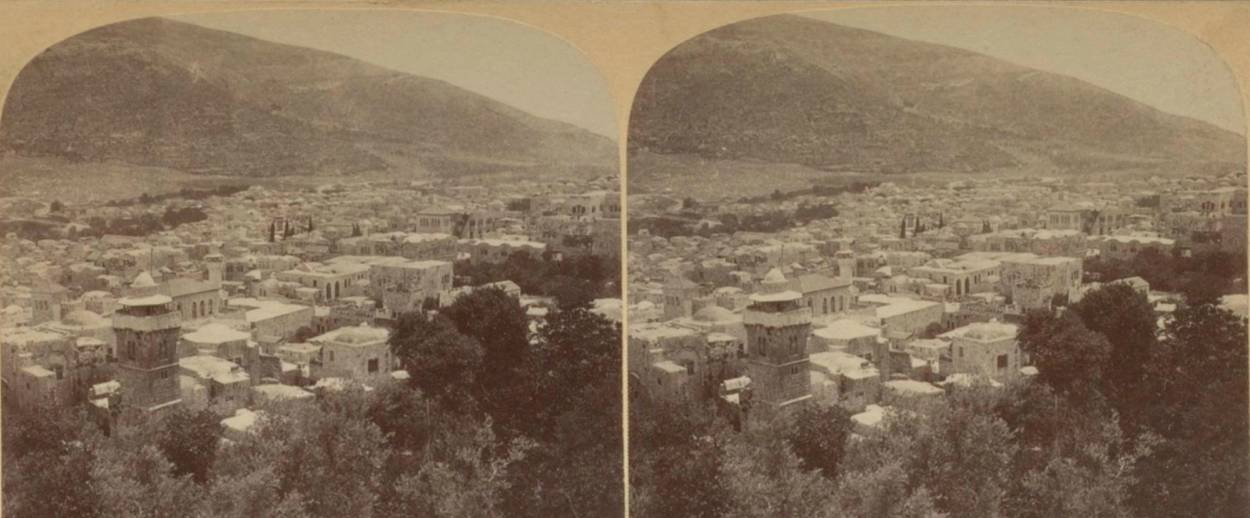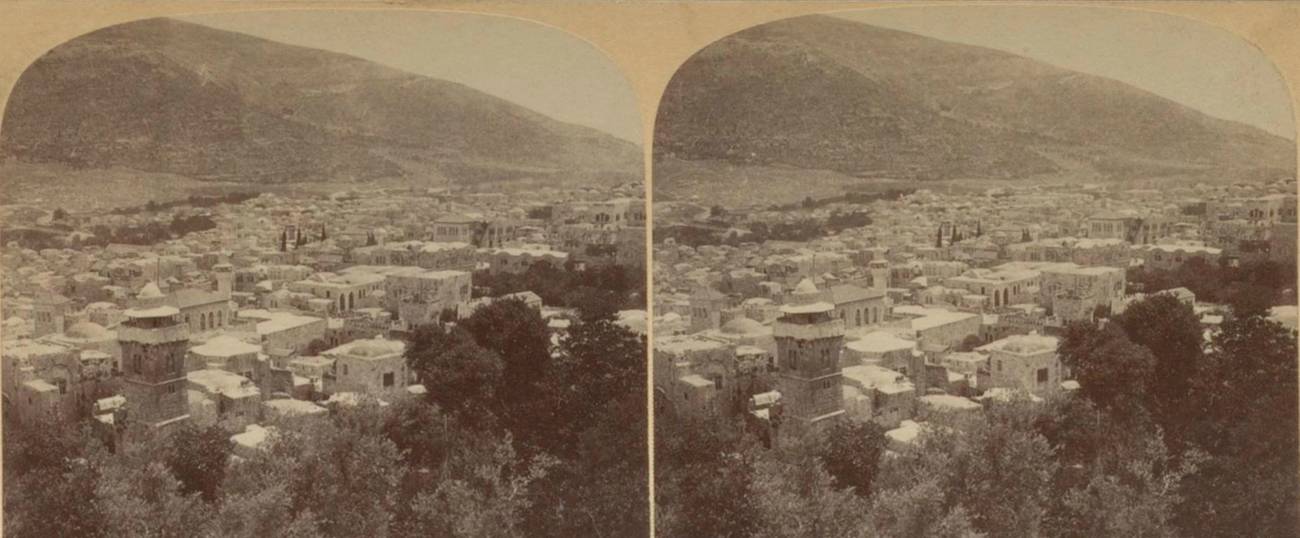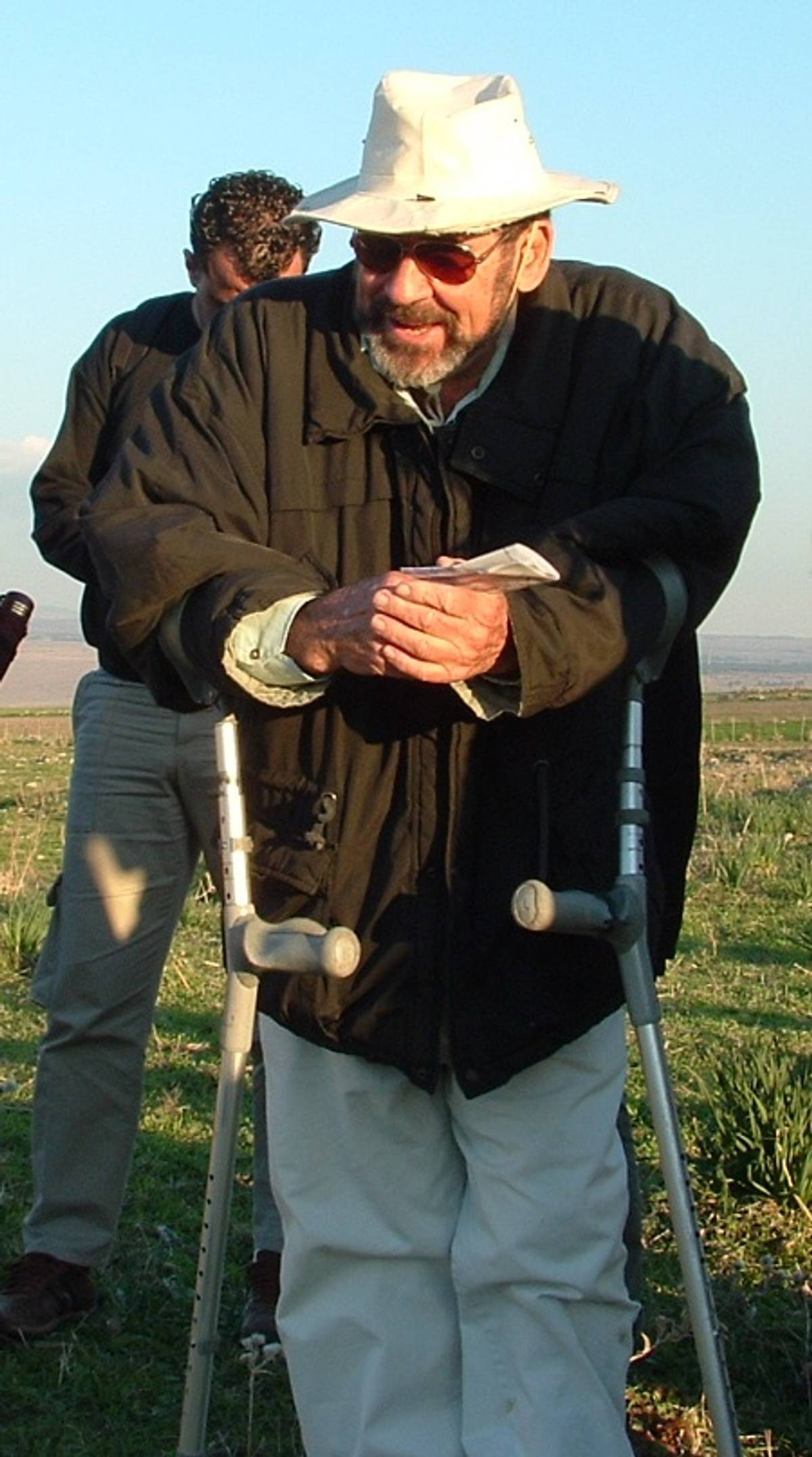Adam Zertal, Israeli Archaeologist Who Identified Joshua’s Altar at Mt. Ebal, Dies at 79
Zertal’s claim, which gives credence to his belief that the Bible should inform archaeological research, remains hotly contested




Adam Zertal, a prominent Israeli archaeologist and expert in ancient Near East studies who spent 30 years surveying a tremendous breadth of land in the West Bank, passed away on Sunday at the age of 79. In the 1980s, Zertal, a professor at the University of Haifa, believed the books of the Hebrew Bible could and should inform the work of contemporary archaeologists, identified an altar built by the Biblical prophet Joshua on Mount Ebal—near to where Palestinian rioters torched a holy site marking Joseph’s tomb last Thursday. His claim remains hotly contested.
Zertal was born on Kibbutz Ein Shemer in 1936. His father, Moshe, was a journalist from Warsaw and a leader in the Socialist-Zionist youth movement Hashomer Hatzair. As the kibbutz’s economy was reliant on agriculture, Zertal spent five years studying economics and agriculture before assuming the role of economic director at Ein Shemer. His influence, however, extended far beyond the fields of his kibbutz; in 1972, he led an Israeli delegation to Central Africa Republic and Rwanda on an agricultural aid project.
In 1973, Zertal was badly wounded while serving as an engineering officer in the Yom Kippur War. He spent a year in recovery, and his injury would force him to spend the rest of his life on crutches. But Zertal did not dwell on his physical misfortune. Upon his release from the hospital he began studying archaeology at Tel Aviv University, a bastion of secular culture where the unchallenged consensus was that the Biblical narrative was a historical mythology.
This was a critical juncture in time for archaeologists because Israel had recently gained control over archaeologically rich territory in the West Bank in the aftermath of the Six-Day War. As a result, Zertal participated in surveys conducted by the Israel Antiquities Authority that identified hundreds of sites from the Biblical period that had never before been studied. He is credited with discovering the Biblical Harosheth Hagoyyim site, mentioned in Judges chapter 4, while leading a dig at the el-Ahwat excavation site between 1993 and 2000.

Over the course of his lifetime, Zertal’s most incredible undertaking was a three-decade long survey that covered the territory from Hadera in the north down to the city of Jericho. During this survey in 1980, Zertal became convinced that a collection of stones at Mount Ebal was the altar built by Joshua. This is first mentioned by a command Moses presents to the Israelites in Deuteronomy 27:4:
And it shall be when you pass over the Jordan, that you shall set up these stones, which I command you this day, in Mount Ebal, and you shall plaster them with plaster.
In the book of Joshua, after Moses has died and the Israelites have crossed the Jordan, the performance of this command is explicitly recorded in Joshua 8:30-31:
Then Joshua built an altar unto the Lord, the God of Israel, in Mount Ebal, as Moses the servant of the Lord commanded the children of Israel, as it is written in the book of the law of Moses, an altar of unhewn stones…
“If this corroborates exactly what is written in that very old part of the Bible,” Zertal told Smithsonian Magazine in 2006, “it means that probably other parts are historically correct. The impact is tremendous.”
Zertal spent nine year at Mount Ebal, excavating the site, and his work continues to have resounding implications.
While many in Israel celebrated Zertal’s findings as confirmation of the Biblical narrative, and validating Jewish ties to the land, his claim never gained widespread acceptance by the archaeological community. Aharon Kempinski, an archaeologist at Tel Aviv University, was one of the many who perceived Zertal’s assertions as baseless.”
The controversy didn’t bother Zertal. At a lecture four years ago, he said, “If you don’t have enemies, you don’t exist… If everybody agrees with you, you are nothing.”
Steven Fine, a professor of Jewish history at Yeshiva University, finds that “archaeology in Israel is becoming increasingly sectarianized” for political gains, he told me. Fine asserts that archaeologists such as Zertal still have importance for contemporary Israeli culture but are increasingly being exploited by “everyone from Haaretz to Arutz Sheva”—the political spectrum of the Israeli media—to suit their ideological leanings. In this type of climate, Zertal’s work risks being used for partisan aims.
With the ongoing wave of violence plaguing the region, Zertal’s findings remain relevant to this very day. At a time when the Palestinian people, Arab governments and The New York Times seem equally confused about basic historical facts regarding the Jewish presence in Biblical Israel (note: among scholars, there is decisive unanimity), Zertal’s archaeological legacy emphasizing the historical ties that Jews have to the land cannot afford to be ignored.
Zertal is survived by his wife Yehudit, his sister Idit, and his children Amotz, Imri, Rotem, and Navot.
Previous: Researchers: Ancient Scroll Discovered in Israel Contains Verses From Leviticus
Ancient Mosaic Discovered in Israel May Depict Alexander the Great Meeting a Jewish Priest
Yitzhak Bronstein is a master’s student at the University of Chicago Divinity School and a regional Jewish educator for Moishe House.